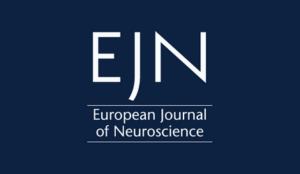Can Ketamine Research Offer New Insights into the Causes of Psychosis in People With Schizophrenia?
 Problems abound in defining schizophrenia. Its primary symptom is psychosis; the two most common functional psychoses are schizophrenia and bipolar disorder (also known as manic-depressive illness). The distinction between the two is not easy to make and psychiatrists in different parts of the world at different times have drawn the boundaries in different ways.
Problems abound in defining schizophrenia. Its primary symptom is psychosis; the two most common functional psychoses are schizophrenia and bipolar disorder (also known as manic-depressive illness). The distinction between the two is not easy to make and psychiatrists in different parts of the world at different times have drawn the boundaries in different ways.
The cause of the illness is equally hard to pin down. “There is no single organic defect or infectious agent which causes schizophrenia, but a variety of factors increase the risk of getting the illness—among them, genetics and obstetric complications,” wrote the late Colorado Recovery founder Richard Warner, MD, in his influential book The Environment of Schizophrenia. “
New research reported in the European Journal of Neuroscience into how the NMDA receptor inhibitor ketamine affects the brains of rats may eventually lead to a better understanding of the causes of psychosis in people with schizophrenia.
Ketamine is a dissociative anesthetic used medically for induction and maintenance of anesthesia. It is also used as a treatment for depression, a pain management tool, and—like similar substances—sometimes misused as a recreational drug. Ketamine was derived from phencyclidine in 1962, in pursuit of a safer anesthetic with fewer hallucinogenic effects.
In healthy individuals, ketamine can induce a mental state similar to psychosis. “In normal healthy subjects and rodents, complex integration processes, like sensory perception, induce transient, large-scale synchronized beta/gamma oscillations in a time window of a few hundred ms (200-700 ms) after the presentation of the object of attention (eg, sensory stimulation),” researchers wrote. “Our goal was to use an electrophysiological multisite network approach to investigate, in lightly anesthetized rats, the effects of a single psychotomimetic dose (2.5 mg/kg, subcutaneous) of ketamine on sensory stimulus-induced oscillations.”
“Researchers monitored rat responses to having their whiskers stimulated before and after ketamine administration. Microelectrodes implanted in the animals recorded electrical activity in the thalamus and the somatosensory cortex, a region of the brain responsible for processing sensory information from the thalamus,” Jolynn Tumolo explained on Psych Congress Network.
“The discovered alterations in thalamic and cortical electrical activity associated with ketamine-induced sensory information processing disorders could serve as biomarkers for testing antipsychotic drugs or predicting the course of disease in patients with psychotic spectrum disorders,” Sofya Kulikova, a member of the research team told Psych Congress Network.
Ketamine increased the power of beta and gamma oscillations in the cortex and the thalamus, even in the resting state before the stimulus occurred, the research team reported. The amplitude of beta/gamma oscillations in the 200–700 ms post-stimulus period at each cortical and thalamic site was significantly lower following ketamine administration, which appears to be associated with impaired perception.
“By inhibiting NMDA receptors, ketamine also added noise to gamma frequencies in the post-stimulation period in one thalamic nucleus and in one layer of the somatosensory cortex,” Tumolo reported the result of the analysis. “This noise increase further impaired the ability of neurons to process incoming sensory signals, researchers believe.”
The researchers believe “the present findings support the hypothesis that NMDA receptor antagonism disrupts the transfer of perceptual information in the somatosensory cortical-thalamo-cortical system.” The findings could eventually lead to new methods for the treatment of psychotic episodes in schizophrenia.
Colorado Recovery provides services for adults with serious mental illnesses that will stabilize their illness, minimize symptoms, improve functioning, and enhance each person’s social inclusion, quality of life, and sense of meaning in life.
We provide residential and outpatient treatment options for schizophrenia, bipolar, schizoaffective disorder, and other mental health conditions. Call us at 720-218-4068 to discuss treatment options for you or the person you would like to help.





